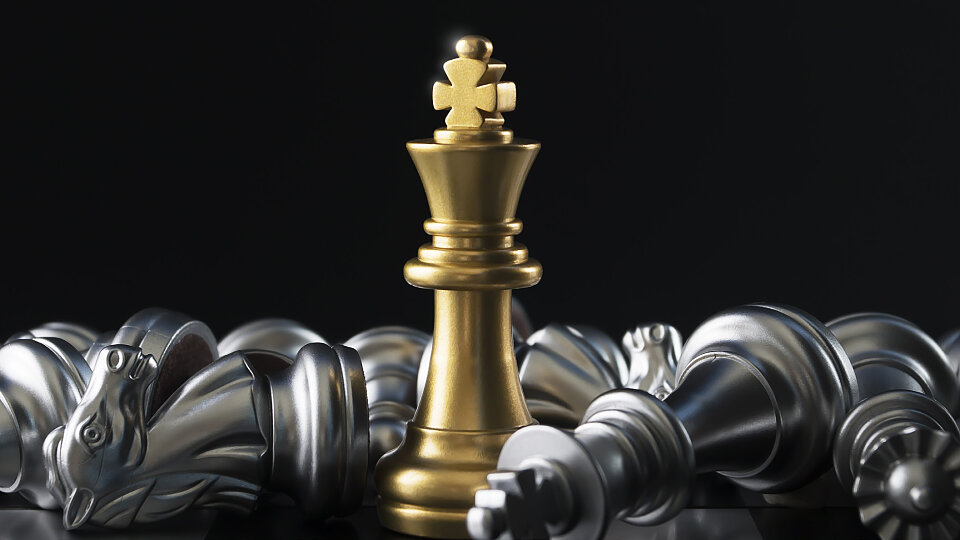Giving Glory to God | The Victory of Gideon
I recently finished an extensive biography that covered the life and career of Napoleon Bonaparte. It took six different coalition armies comprising the rest of Europe to finally defeat Napoleon and his French Empire, and Napoleon was banished to the island of Elba.
In a daring move, Napoleon escaped his house arrest on the island and returned to France, hoping to regain his throne. He landed on French soil with 600 soldiers, and less than a month later, he regained his throne in Paris and his emperor’s crown.
While Napoleon’s dramatic return was short lived, his strategic intuition and his ability to build loyalty from his soldiers makes him a memorable figure in the annals of western history. There is another general from the more ancient past who has been remembered throughout eastern history. He is remembered, not because his victories were any more impressive, but because General Gideon refused to take the credit for his military success. In Judges chapter 7, Gideon is receiving military instruction from God that would baffle any commander-in-chief today. Essentially, God tells Gideon that he has too many soldiers. If you could go back in time and ask any general, from Alexander the Great, to Julius Caesar, to Napoleon, to Ulysses S. Grant, they would all tell you there is no such thing as too many soldiers. The enemy of Israel—the Midianites—have an army of 135,000 soldiers encamped in a valley to the north. They have a massive advantage in troops, but a disadvantage in location. Any general will tell you the best place to be positioned is on high ground, not in a valley. Gideon’s Israelite army is smaller, numbering 32,000 soldiers who have volunteered to help drive these Midianite oppressors from the Promised Land. Essentially, Gideon’s army is already outnumbered 4-to-1, but God informs Gideon that his army is too large. At the instruction of God, Gideon says to his troops, “Whoever is fearful and trembling, let him return home and hurry away” (Judges 7:3). With that invitation, 22,000 soldiers pack up and leave!
Now General Gideon has 10,000 soldiers remaining. His army is outnumbered now more than 13-to-1! Surely his army is small enough now to enter a battle that God alone can win. Not exactly!
God now delivers a test for the soldiers, and it’s a simple one. He wants to see how these soldiers drink water from a nearby stream. The vast majority of the soldiers kneel down to drink, which indicates that they’ve put their swords and spears down, taking their eyes off the enemy location in the valley below. However, 300 soldiers scoop the water up to their mouths, keeping their eyes alert and focused on their surroundings. God tells Gideon to dismiss the 9,700 who casually drank without remaining alert, leaving Gideon with only 300 soldiers. Let me do the math: that’s 450 Midianite soldiers for every Israelite soldier. But with that, God now informs Gideon, “With the 300 men who lapped I will save you and give the Midianites into your hand” (Judges 7:7). To this day, nobody remembers Gideon’s military skill or leadership ability. That’s because the victory rested entirely on God’s sufficiency. Gideon never received a Medal of Honor, because all the honor was rightly directed to God. According to the Master General— God—the Israelite soldiers stationed themselves on the high ground and then, on cue, they blew trumpets and smashed earthen jars, which tricked the Midianites into thinking they were vastly outnumbered, surrounded by an enemy army. In their confusion and panic, the Midianites began fighting each other. The Israelites did nothing but stand on the hillside and watch their victory unfold. If history included you as a great warrior, who would you rather be: Napoleon or Gideon? Napoleon was renowned for his military genius, as well as his contributions to government, art, and culture. Even today, military academies study his tactics and millions of people visit his tomb each year.
Very few people remember Gideon, except for the fact that he put out a fleece to try and get an added guarantee to the promise of victory he had already received from the Lord.
But in my opinion, Gideon is worth a closer look. How many of us would march into battle when the odds are 450 to 1? How many of us would stare down an enemy that had intimidated and subjugated a nation for decades? Gideon obeyed—much to his credit. And as the battle ended, he was willing to allow the glory of God to increase, rather than attempt to exalt his own.
How quickly do we take credit for our successes in life? How important is our reputation, compared to other believers? How do we want to be remembered after we die?
The truth is, every day we have a choice: we can use our gifts and talents to train the spotlight on us, demanding credit for courage or skill or tenacity, or our own hard work. Or we can shift the spotlight and deflect any attention, praise, and honor we might be given to the Lord, who enabled us to begin with. He created us with our gifts and talents, planning every success and victory in life.
God has also allowed just enough failures in life to keep us humble, grateful, and dependent upon Him.



اضف تعليق